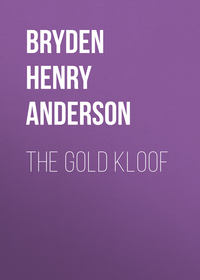Читайте только на Литрес
Книгу нельзя скачать файлом, но можно читать в нашем приложении или онлайн на сайте.
Читать книгу: «The Gold Kloof», страница 8
Что-то пошло не так, попробуйте зайти позже
Покупайте книги и получайте бонусы в Литрес, Читай-городе и Буквоеде.
Участвовать в бонусной программеВозрастное ограничение:
12+Дата выхода на Литрес:
25 июня 2017Объем:
280 стр. 1 иллюстрацияПравообладатель:
Public Domain
